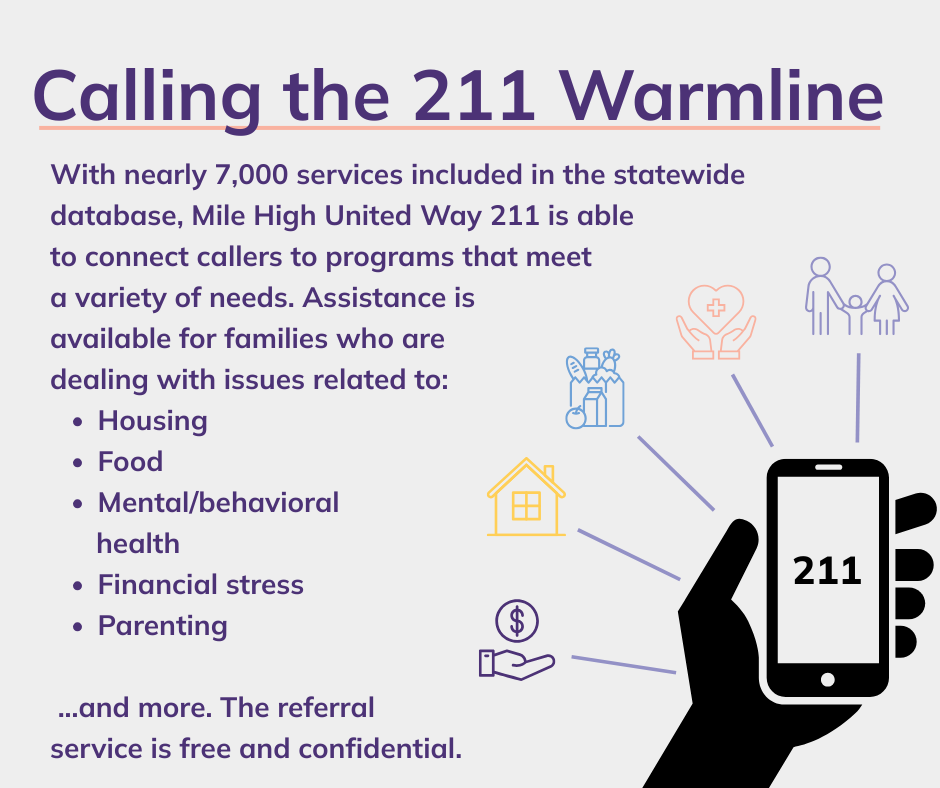A pilot program launching in three Colorado counties seeks to reduce child welfare involvement by connecting families in need to community support – without engaging protective services.
In 2022, Colorado received more than 114,000 calls to its child protection hotline. More than 71% were screened out, meaning they did not meet the threshold for investigation and rarely resulted in any services for the family. This is common when a report reflects concerns about unmet needs or family stress — not abuse or neglect. Nonetheless, these families are recorded in state records as suspected of maltreatment — a label they carry indefinitely, when all many of them needed was some support.
The Mile High United Way 211 Warmline is a direct response to that gap.
Starting in December, people who call protective services with concerns about a family can access the warmline, a free confidential referral service.
The pilot is designed to respond to calls about families whose needs fall outside the scope of child protective services. Instead of automatically directing calls to child welfare, the system will offer an alternative: speak with a trained navigator who can identify local resources that can help — without triggering a formal investigation of the family.
Developed with the Reimagining Colorado’s Child Welfare System steering committee and supported by Foster America, the dual-pathway model is being piloted in Boulder, Pueblo, and El Paso counties. The approach could expand statewide as early as 2026. From vision to rollout, Foster America has played a central role in the warmline pilot — aligning resources, centering community input, and working alongside Colorado to guide the design and rollout of the model.

With nearly 7,000 services included in the statewide database, 211’s free confidential, multi-lingual referral line is able to connect callers to programs that meet a variety of needs. There is assistance available for issues related to housing, food, mental/behavioral health, financial stress, parents experiencing conflict with their children, and more.
Callers to 211 will be connected with a community navigator – a trained professional who can offer support and resources. (If a child’s safety is at risk, the caller will be warmly redirected to protective services.)
This voluntary early support option offers a more compassionate response to families who are struggling — keeping non-urgent concerns from triggering formal investigations, reducing strain on government systems, and connecting people to help without exposing them to unnecessary scrutiny.
The pilot runs through May 2026, gathering data on usage, family needs, and what infrastructure is needed to expand the model statewide.